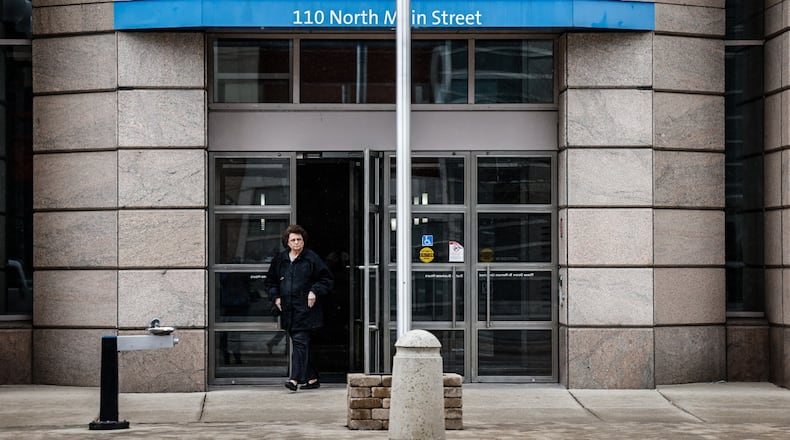“While some workers have returned to the office (as COVID restrictions waned), the vast majority of Premier Health’s downtown work force have continued to work remotely either full-time or at least part-time,” company officials said.
The company said the number of people working at the Premier System Support office complex (the 110 N. Main St. building) on any given day has declined from more than 1,000 prior to the pandemic to approximately 200 today, including tenants.
“This significant shift, combined with the need for Premier Health to strengthen its financial position, has contributed to a decision to sell the building,” Premier Health officials said.
The health care industry in recent years has faced the financial impact of the COVID-19 pandemic, high wage costs in a tight labor market, and insufficient reimbursement compounded by inflationary pressures, company officials said.
“Premier Health has not been immune to those challenges,” a spokesperson for the company said via email. “Retaining ownership of more office space than we need is not a priority in the current economic environment.”
Credit: Jim Noelker
Credit: Jim Noelker
The 20-floor, 328-foot-tall building has 297,000 square feet of rentable space, according to Premier. It was built in 1989 as the Citizens Federal Centre, then later was called the Fifth Third Center until 2009. Premier Health acquired the property in 2011 for $6.19 million, and has occupied the building since June 2012.
Currently, there are six other tenants renting space in the building.
The shift toward hybrid work is part of a larger trend, Dayton business leaders said, where many administrative jobs and others that can be done remotely are staying that way post-pandemic.
A survey of businesses by the Downtown Dayton Partnership last year indicated that “the vast majority” of respondents had moved to operating on a hybrid model, typically with more time spent in the office than without, said Sandy Gudorf, president of the Downtown Dayton Partnership.
“We see different trends in employers downtown. Sometimes it’s sector-related,” she said. “It’s up to individual companies and what’s best for them.”
Attracting talent is still a challenge, Gudorf added, and so adapting to the needs of employees has become a high priority for employers. Much of the recent development in downtown Dayton, including the Fire Blocks District and the Arcade, are a combination of housing, office space, and first-floor restaurants and retail.
Other office building developers, like Woodard Development which owns buildings on Third Street, are focusing on smaller, trendier offices that might be suitable to hybrid work, Gudorf said.
“Property owners are looking at different ways to be more attractive to some users. In some cases that might be co-working, smaller spaces, etc. We’re seeing a lot of examples of creative ways to use spaces,” she said.
Other major buildings in downtown Dayton have recently changed hands, including the property at 34 to 40 W. Second St. known as “Courthouse Crossing.” Previously owned by a company in Florida, the property sold to Dublin, Ohio-based Tain Investments III LLC for $1.65 million earlier this month. Courthouse Crossing is or has been home to CVS Pharmacy, the Area Agency on Aging, the Arts Annex, CareSouce Logistics, and Boston Stoker.
“COVID allowed all of us to realize that flexible work environments are possible, and there are certain positions that can be done remotely,” said Chris Kershner, CEO and President of the Dayton Area Chamber of Commerce. “That’s a reality of where we are, and so there will certainly be changes in office space that reflect that.”
Kershner pushed back against the idea that building sales marked a disinvestment in downtown real estate.
“If the story is, ‘everybody is reducing footprints in downtown Dayton,’ I don’t think that’s true. It’s a natural part of investing in real estate,” he said. “You invest when you believe it’s strategic, and sell when you believe it’s strategic.
“Given the post-COVID world that we’re in, businesses have to make decisions on their operations and do what’s in the best interest of fulfilling their mission, which is providing high quality healthcare options to people in the Dayton area,” Kershner said.
Premier Health officials said the company remains committed to the city of Dayton, citing ongoing projects to redevelop the former Montgomery County Fairgrounds site across from its Miami Valley Hospital, and to open the new Premier Health YMCA at the former Good Samaritan Hospital site.




